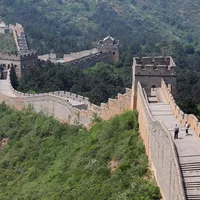75 好 朋友
75 Gute Freunde.
75 Good friends
75 Buenos amigos.
75 Bons amis.
75 仲良し
75 Bons amigos.
75 Хорошие друзья.
好 朋友
|ami
guter Freund
good friend
Bon ami
我 和 刘述 勇 * 是 在 二年级 认识 的 。
||Liu Shu|Yong|||deuxième année||
|with|Liu Shu|bravely|||second grade|met|
||劉述勇|勇 is a name in this context.|||2年生||
Liu Shuyong* und ich haben uns in der zweiten Klasse kennengelernt.
I met Liu Shuyong in the second grade.
Conocí a Liu Shuyong* en segundo curso.
Je connais Liu Shuyong depuis la deuxième année.
リウ・シュヨン(※)とは小学2年生のときに出会った。
那天 , 我们 班转 * 来 两位 新 同学 , 其中 一位 就是 刘述 勇 。
||班转|||||||||
that day|we|had two new classmates join our class||two|||one of them|a student|is|Liu Shu Yong|Yong
||転校生が来た||二人|||||||
An diesem Tag wechselte* unsere Klasse zu zwei neuen Klassenkameraden, von denen einer Liu Shuyong war.
That day, two new classmates transferred to our class, one of whom was Liu Shuyong.
Ese día, dos nuevos alumnos fueron trasladados a nuestra clase, uno de los cuales era Liu Shuyong.
Ce jour-là, notre classe a accueilli deux nouveaux élèves, dont l'un était Liu Shuyong.
その日、私たちのクラスに2人の転校生がやってきた。
他 的 脸 黑黑的 , 大大的 眼睛 、 圆溜溜 的 鼻子 , 脸上 常常 带 着 微笑 *。
||||||rond et luisant|||||||
||face|black|big|big eyes|round||nose|on his face|often|has|indicating state|a smile
|||黒い|大きな||丸い||鼻|||||
Er hat ein dunkles Gesicht, große Augen, eine runde Nase und ein Lächeln* im Gesicht.
He has a dark face, big eyes, a round nose, and is often smiling.
Su rostro era moreno, con ojos grandes, nariz redonda y una sonrisa en la cara.
Son visage est noir, avec de grands yeux et un nez rond. Il a souvent un sourire sur le visage.
彼は暗い顔、大きな目、丸い鼻、そして彼の顔に笑顔*を持っています。
下午 上 体育课 , 老师 让 我们 自由 活动 , 因为 刘述 勇刚 转 来 , 所以 没有 人 和 他 玩 。
||cours de sport||||||||Yonggang||||||||
afternoon|in the afternoon|physical education class||||free activities|to move freely||Liu Shu|Yong Gang|transferred|||did not have||||to play
||体育の授業||||||||勇剛|転校して|||||||
Am Nachmittag war Sportunterricht, der Lehrer erlaubte uns, uns frei zu bewegen, da Liu Shuyong gerade erst umgezogen war, spielte niemand mit ihm.
In the afternoon, during physical education class, the teacher let us have free activities. Since Liu Shuyong had just transferred in, no one played with him.
Por la tarde, en clase de educación física, el profesor nos dijo que jugáramos libremente porque Liu Shuyong acababa de ser trasladado, así que nadie jugaba con él.
L'après-midi, en cours de sport, le professeur nous a laissé jouer librement. Comme Liu Shuyong vient juste d'arriver, personne ne joue avec lui.
午後の体育の授業で、先生は私たちに自由に遊ぶように言った。
我 看出 他 很 想 打乒乓球 *, 就 把 他 拉 起来 说 :“ 走 , 我 和 你 去 打球 。
|||||jouer au ping-pong||||||||||||jouer
|noticed||||to play table tennis|then|indicates action||invited|up||to go|||||play ball
|見て取る||||||||||||||||球を打つ
Ich sah, dass er unbedingt Tischtennis* spielen wollte, also zog ich ihn hoch und sagte: „Geh, ich spiele mit dir.
I could tell he really wanted to play table tennis, so I pulled him up and said, 'Come on, I'll play with you.'
Vi que tenía muchas ganas de jugar al ping-pong*, así que tiré de él y le dije: "Venga, voy a jugar contigo".
Je peux voir qu'il a très envie de jouer au ping-pong, alors je l'ai tiré et je lui ai dit : 'Allez, je vais jouer avec toi.'
私は、彼が本当に卓球(※)をやりたがっているのがわかったので、彼を引き上げて、「さあ、一緒にやろう」と言った。
” 他 高兴 极了 , 就 这样 , 我 和 他 成 了 好 朋友 。
|||||||||devenir||
||very|then|like this||||became|past tense marker||
"Er war sehr glücklich, und so wurde ich gute Freunde mit ihm.
He was extremely happy, and just like that, he and I became good friends.
"Estaba muy contento y nos hicimos buenos amigos.
Il était extrêmement heureux, et c'est ainsi que lui et moi sommes devenus de bons amis.
「彼はとても喜んでくれた。

